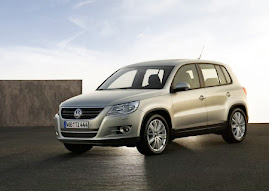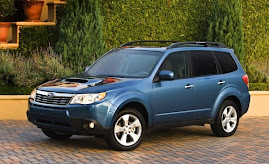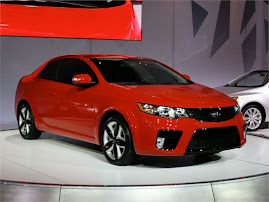--Volkswagen Receives Four Segment-Level Awards; Ford, Honda, Mercedes-Benz and Nissan Receive Two Each
WESTLAKE VILLAGE, Calif., July 16, 2009 /PRNewswire via COMTEX/ -- The automotive industry achieves a three-year high in appeal for new and redesigned models, according to the J.D. Power and Associates 2009 Automotive Performance, Execution and Layout (APEAL) Study(SM) released today. Seven of these models have received segment-level awards.
In 2009, the APEAL score for all-new and redesigned models averages 790 on a 1,000-point scale--11 points higher than in 2008 and 15 points higher than the 2009 score for carryover models. In addition, seven all-new and redesigned models rank highest in their respective segments, including the Dodge Challenger, Ford F-150 (in a tie), Ford Flex, Hyundai Genesis, Nissan Maxima, Volkswagen CC and Volkswagen Tiguan.
"Most automakers are on track in terms of designing new models that are highly appealing," said David Sargent, vice president of automotive research at J.D. Power and Associates. "The greater challenge for manufacturers lies in creating models that launch with both strong appeal and high quality, which ultimately lead to improved sales through greater customer loyalty and advocacy."
Throughout the years, vehicle models achieving high APEAL scores have been shown to benefit from faster sales, less need for cash incentives and higher profit margins on each vehicle sold.
The average APEAL score for all models in 2009 has improved considerably to 779 from 770 in 2008, driven primarily by increased owner satisfaction with fuel economy. This higher satisfaction comes from three main sources. First, fuel prices have decreased significantly during the past year, which has reduced owner concerns about gas mileage. Second, owners are switching to more fuel-efficient vehicles--in 2009, more than one-half of all vehicles included in the study are powered by four-cylinder engines, compared with just 39 percent in 2008. Third, automakers are designing models to be more fuel efficient than their predecessors.
"Although lower fuel prices and the switch to smaller vehicles have undoubtedly helped, there are also many individual vehicles that have made strong improvements in fuel economy ratings," said Sargent. "For example, the Ford F-150, Cadillac Escalade, Volkswagen Jetta and redesigned Dodge Ram have all made major strides in owner satisfaction with fuel economy through the introduction of more efficient powertrains."
In 2009, domestic brands comprise the four most-improved nameplates. Dodge posts the largest improvement, followed by Pontiac, Buick and Cadillac, respectively. In addition, the three most-improved models are from domestic manufacturers, including the Dodge Ram, Buick Lucerne and Ford F-150.
"Consumers have a great array of appealing vehicles to choose from by both domestic and import brands," said Sargent.
The overall gap in APEAL scores between domestic and import models has narrowed considerably during the past several years and is just five index points in 2009, compared with 15 points in 2008 and 27 points in 2007. Among premium models, import nameplates retain a slight edge, while among non-premium models, domestic brands have a similar edge.
APEAL Model-Level and Nameplate Rankings
Volkswagen captures four segment-level awards--more than any other vehicle nameplate in 2009--for the CC, GTI, Passat and Tiguan. Ford, Honda, Mercedes-Benz and Nissan each garner two awards. Ford receives model-level awards for the F-150 (in a tie) and Flex. Honda models receiving awards are the Odyssey (for a fifth consecutive year) and Ridgeline (for a fifth consecutive year). Mercedes-Benz earns awards for the S-Class (for a third consecutive year) and SLK-Class. The S-Class achieves the highest APEAL score of any model in the industry. Nissan receives awards for the Armada and Maxima.
Also receiving awards are the Chevrolet Avalanche (for a second consecutive year), in a tie; Dodge Challenger, Hyundai Genesis, MINI Cooper (for a second consecutive year); Porsche Cayenne (for a second consecutive year); and smart fortwo. The Ford F-150 and Honda Ridgeline are the only two models to rank highest in their respective segments in both the 2009 APEAL Study and 2009 Initial Quality Study (IQS) released in June.
Porsche is the highest-ranking nameplate in APEAL for a fifth consecutive year.
The APEAL Study examines how gratifying a new vehicle is to own and drive, based on owner evaluations of more than 90 vehicle attributes. The 2009 APEAL Study is based on responses gathered between February and May 2009 from more than 80,900 purchasers and lessees of new 2009 model-year cars and trucks who were surveyed after the first 90 days of ownership. The APEAL Study complements the recently released J.D. Power and Associates Initial Quality Study(SM) (IQS), which focuses on problems experienced by owners during the first 90 days of ownership.
Find more detailed findings on new-vehicle APEAL performance as well as model photos and specs by reading an article and reviewing APEAL ratings at JDPower.com.
Subscribe to:
Post Comments (Atom)













_(544x408).jpg)


No comments:
Post a Comment